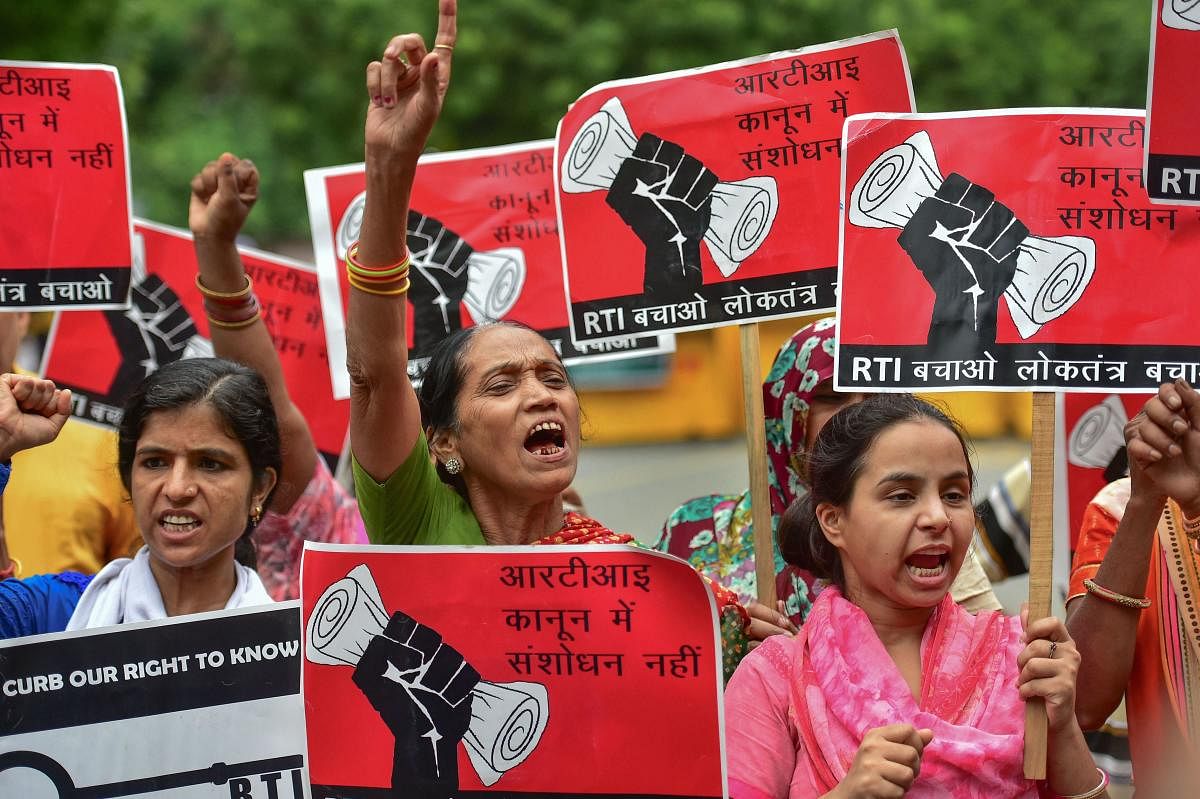
Thousands of rights activists have come together to pose tough questions to the government under the Right to Information (RTI) Act on a range of issues from Rafale fighter jet deal to the National Register of Citizens and make the government's reply public, as part of a campaign against the amendments to the transparency law passed by Parliament recently.
The National Campaign for People's Right to Information (NCPRI), which had played a key role in the enactment of the transparency law in 2015, on Thursday launched the nation-wide campaign titled 'Use RTI to save RTI' against the changes in the transparency law, demanding that the government withdraw the amendments.
They also urged President Ram Nath Kovind not to give assent to the Right to Information (Amendment) Bill, 2019, saying its implementation will take away the rights of the citizen to seek information from the government.
"The government is playing with fire. People will not stop. People will keep seeking information under the RTI Act. Thousands of people will start filing RTI applications seeking information on a range of issues from Rafale deal to NRC under the Act from today. We will keep making the government's response public,” rights activist Nikhil Dey said at a press conference.
Anjali Bhardwaj, another RTI activist associated with the NCPRI, said there will now be "greater public scrutiny" of the functioning of the information commissioners to "expose" those acting under government pressure.
"Using its brute majority in the Lok Sabha, the government got the bill passed. In the Rajya Sabha, as many as 15 parties had signed in favour of a demand for sending the bill to a select committee but some of these parties changed their mind overnight and the bill was passed," she said.
Stressing that changes in the RTI Act passed by Parliament would weaken the law and take away the right of the people to seek information from the government, Bhardwaj demanded that the President stand with the people of the country and refuse to give assent to the RTI (Amendment) Bill, 2019.
Sharing the dais with RTI activists at the press conference, Wajahat Habibullah, who was the first Chief Information Commissioner, said the government gave "fallacious arguments" in favour of the amendments to the RTI Act.
"Several cases of corruption came to light because of the RTI," he noted, wondering if it was right for the Union government to "weaken" such a law through amendments when it talks about zero tolerance to corruption.
The NCPRI plans to knock at the doors of the Supreme Court against the amendments passed by Parliament if their demands are not fulfilled.
"We will look at the option to approach the Supreme Court. We will fight to make the information commission a constitutional body for its independence. At this moment, we are taking the issue to the people's court," Dey told DH.